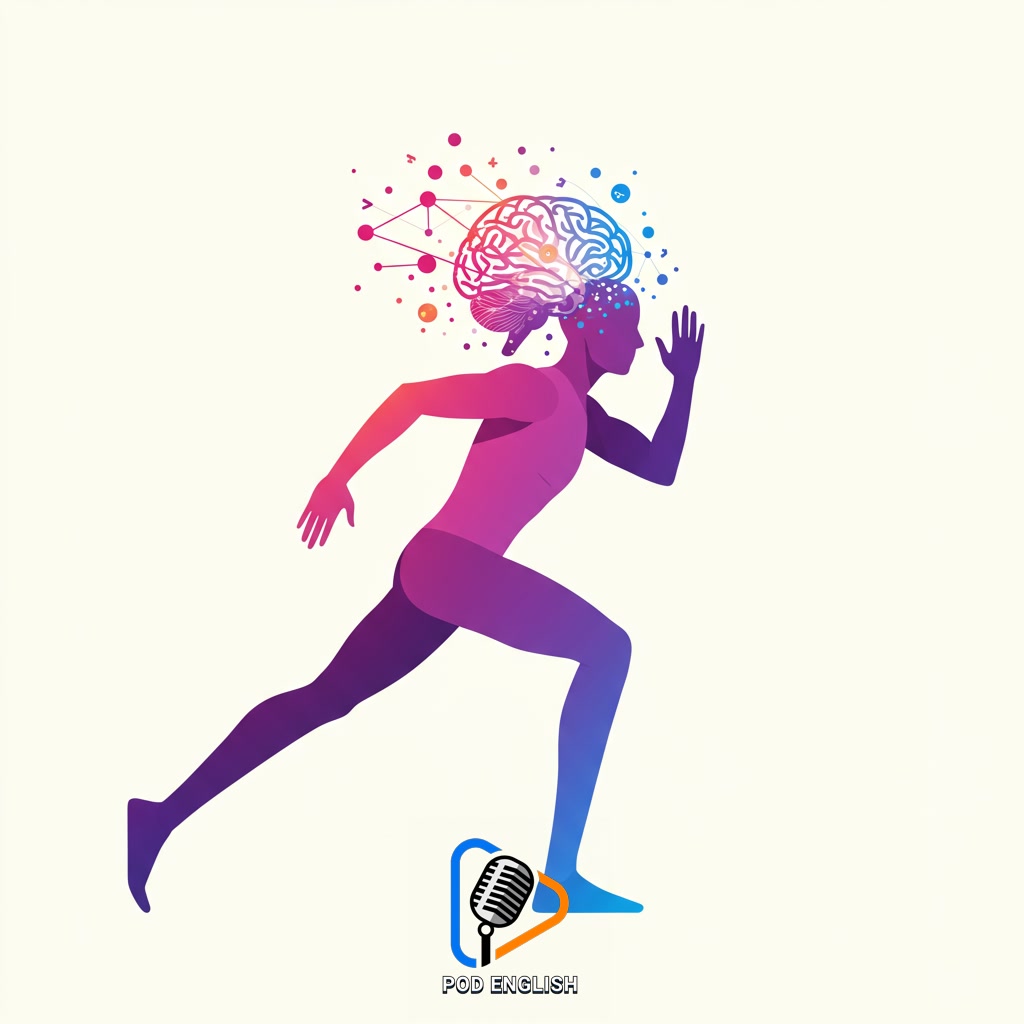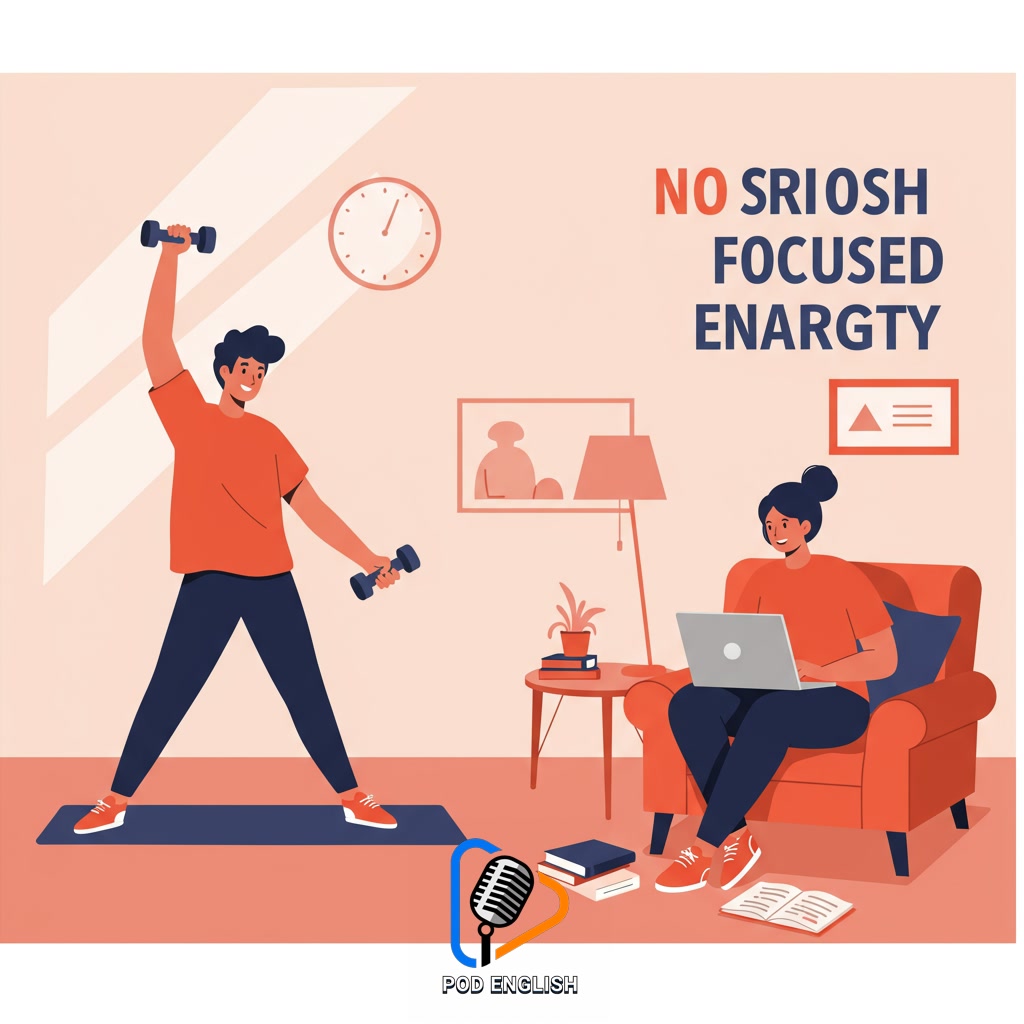Learn English
Fitness Boosts Your English Study Mood and Motivation

Engaging in physical fitness activities can significantly enhance your mood and motivation levels specifically for learning English. Regular exercise helps reduce stress and improve focus, creating a more positive mindset for tackling language challenges. This improved mental state makes the process of learning English more enjoyable and sustainable. Ultimately, integrating fitness into your routine can be a powerful strategy to boost your progress in language acquisition.
Table of Contents
- Section 1: The Unexpected Link: How Fitness Impacts Your Learning Potential
- Section 2: Boosting Brain Power: Cognitive Benefits of Physical Activity
- Section 3: Elevating Your Mood: Reducing Stress and Enhancing Positivity for Study
- Section 4: Translating Fitness Benefits to Your English Study Sessions
- Section 5: Practical Ways to Integrate Fitness into Your English Learning Routine
- Section 6: Sustaining Motivation: The Long-Term Synergy of Exercise and Language Acquisition
Section 1: The Unexpected Link: How Fitness Impacts Your Learning Potential
It might seem unexpected, but there’s a strong connection between physical fitness and your ability to learn effectively, especially when tackling a new language like English. Engaging in physical activity does more than just keep your body healthy; it significantly impacts your brain function and emotional state. Exercise triggers the release of powerful chemicals, such as endorphins, which act as natural mood boosters, reducing stress and anxiety. This improved emotional state makes you more receptive to learning and less intimidated by challenges. Furthermore, regular physical activity increases blood flow to the brain, enhancing cognitive functions like focus, memory, and concentration – all crucial for absorbing and retaining new English vocabulary and grammar. This direct impact on your mental clarity and mood is the ‘unexpected link’ that prepares your mind for successful language acquisition.

The Unexpected Link: How Fitness Impacts Your Learning Potential
Section 2: Boosting Brain Power: Cognitive Benefits of Physical Activity
Expanding on the connection between physical activity and learning, exercise has a profound impact on your brain’s ability to function optimally, which is incredibly beneficial for tackling a new language like English. When you move your body, you increase blood flow and oxygen to the brain. This improved circulation helps nourish brain cells and promotes the growth of new neurons, particularly in areas vital for memory and learning. Furthermore, physical activity triggers the release of neurochemicals, such as BDNF (Brain-Derived Neurotrophic Factor), often called ‘Miracle-Gro’ for the brain. These chemicals support cognitive functions like attention, focus, processing speed, and memory consolidation – all essential skills needed to absorb new vocabulary, understand complex grammar, and improve fluency in English. Essentially, by boosting your physical fitness, you are directly enhancing your brain’s capacity to learn and retain information.

Boosting Brain Power: Cognitive Benefits of Physical Activity
Section 3: Elevating Your Mood: Reducing Stress and Enhancing Positivity for Study
Building upon the positive impact of physical activity on brain function, exercise directly contributes to elevating your mood by acting as a powerful stress reliever. When you engage in physical activity, your body produces endorphins, natural mood boosters that reduce the perception of pain and create feelings of euphoria. Simultaneously, regular exercise helps regulate cortisol, the stress hormone. This reduction in stress and increase in positive feelings creates a much more receptive mental state for learning. Instead of feeling overwhelmed or anxious about tackling complex English grammar or vocabulary, you approach it with a clearer, more positive outlook, making the study process feel less like a chore and more like an achievable goal.

Elevating Your Mood: Reducing Stress and Enhancing Positivity for Study
Section 4: Translating Fitness Benefits to Your English Study Sessions
Building on the idea that physical fitness reduces stress and elevates mood, we can directly translate these benefits to your English study sessions. When your mind is less burdened by stress, you can approach challenging English grammar rules or new vocabulary with greater clarity and reduced anxiety about making mistakes. An improved mood fosters patience and persistence, making it easier to navigate complex sentence structures or understand difficult listening passages without feeling overwhelmed. Furthermore, the boost in energy and focus provided by regular exercise helps you stay engaged and productive during longer study periods. This positive mental state makes the process of learning English feel more manageable, enjoyable, and ultimately, more effective, allowing you to absorb information and practice skills with a more receptive mindset.

Translating Fitness Benefits to Your English Study Sessions
Section 5: Practical Ways to Integrate Fitness into Your English Learning Routine
Integrating fitness doesn’t require a complete overhaul of your schedule; small, consistent steps can make a big difference. Consider listening to English language podcasts or audiobooks during your daily walk, jog, or commute. Use language learning apps for quick vocabulary review while stretching before bed or cooling down after a workout. You could also try short bursts of physical activity, like a 5-minute stretching routine, between longer English study sessions to re-energize your mind. Even simple activities like taking a study break to walk around and describe your surroundings in English can combine movement and language practice effectively. The key is finding ways to weave physical activity into the fabric of your existing study routine, making both more enjoyable and productive.

Practical Ways to Integrate Fitness into Your English Learning Routine
Section 6: Sustaining Motivation: The Long-Term Synergy of Exercise and Language Acquisition
Sustaining motivation is a crucial factor in the long-term journey of learning English. Integrating regular physical activity, even in small increments, builds a foundation of physical and mental resilience. This consistent effort in fitness translates directly into the discipline and perseverance needed for language acquisition. Over time, the positive feedback loop strengthens: feeling good from exercise enhances focus and makes study sessions more productive and enjoyable, which in turn encourages continued engagement with both fitness and English. This synergy helps prevent burnout and keeps the learner motivated through challenging phases, ensuring steady progress towards fluency.

Sustaining Motivation: The Long-Term Synergy of Exercise and Language Acquisition













